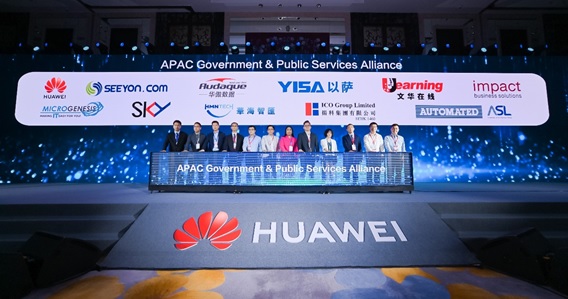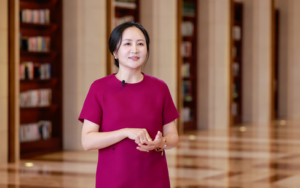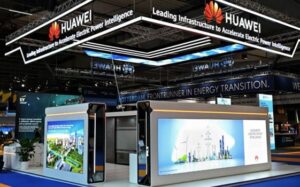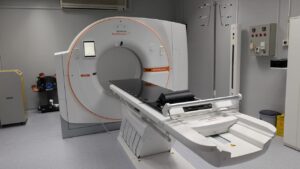Huawei advances Government and Public Digitalization in APAC countries, with partners up to 300

In the recent Huawei Asia Pacific Partners Congress,Simon Zou, Vice President of Huawei EBG Global Public Sector, shed light on Huawei’s expanding partnership network and its role in advancing digital transformation in government, education, and healthcare industries. In the Asia Pacific region, the company’s sales increased by 65% year-on-year. In addition, the proportion of revenue from partner channels has been increasing for three consecutive years, with strategic and core NAs contributing to 80% of the total revenue.
To date, the Global Public Sector of Huawei has developed scenario-based solutions for smart emergency management, inclusive connectivity, intelligent healthcare, intelligent education, supporting industry customers’ digital transformation strategies and helped 700 customers in more than 100 countries implement digital transformation.
Huawei Enterprise BG adheres to the Being Integrated Strategy by adopting fair, just, transparent, and simple partner policies. Huawei teams up with partners to build a healthy ecosystem that advocates open collaboration for shared success. Currently, they have more than 300 solution partners in the domains of government and public services.
At the congress, Huawei launched the new government & public services alliance for the Asia-Pacific region. Over 70 partners from across Asia-Pacific attended this ceremony and pledged to continue cooperation and innovation in numerous domains. Their goal is to join hands to develop capabilities and seize opportunities from industrial digital transformation in the Asia-Pacific market.
Simon Zou shared Huawei‘s partnership strategy in Government and Public services sector. He explained the classification of partners into two groups: Acceleration Partners and Association Partners. Acceleration Partners mainly refer to Sales Partners, including Distributors, Resellers, Distribution Partners, and Registered Sales Partners. Association Partners mainly refer to Consulting and Planning Partners, Solution Development Partners, Service Partners, Business Operation Partners, Talent Alliances, Investment and Financing Partners, and Industry Partners.
Local sales partners can cooperate with national or regional distributors, gold and silver partners, and VAPs to become downstream resellers. They can also cooperate with local OpenLabs to provide scenario-based joint solutions for specific projects to enter the ecosystem.
In the Asia-Pacific region, partners can obtain technical support , including product APIs, technical documents, toolkits, and remote development and commissioning sandbox through the Huawei official website and development communities, involving scenarios of education, healthcare, government, and public safety, etc. Subsequently, partners can perform joint solution verification at the Singapore OpenLab or submit them to the headquarters. Marketing and training support will become available once the joint solution is verified. In addition, regional sales partners, such as distributors and tier-2 partners, will receive rebates based on their sales performance. There will be various forms of incentives, such as the joint marketing incentives.
As he highlghted, Huawei has deployed 10 OpenLabs globally, covering five continents. Each year, more than 1000 scenario-based solutions are developed through these labs. As a joint innovation platform, OpenLabs offer partners and customers with Huawei’s core technologies in computing, cloud, and digital platforms, and provide three types of services: joint innovation and scenario-based solution incubation, solution pre-integration verification, as well as online experience and testing.
“Huawei plans to continuously invest at least US$300 million in our partners worldwide in the next three years, including the Solution Development Fund, Capability Development Fund, and Market Development Fund. These investments will support our partners to continuously develop feasible joint solutions, enhance their capabilities, and carry out joint GTM activities and market expansion”. Simon Zou said.
Standy Nie, Director of Huawei APAC Government and Public Sector said they would provide digital consulting and planning capability、Solution development capability、product technology integration capability to aid partners in serving customers and accelerating their digital transformation. They have already achieved some milestones in goverment and public digitalization in areas like Indonesia, Thailand, Bangladesh, and HongKong.
For example, in Thailand, SWU, a leading teacher-training institution, has gone digital to “Innovative University”. With Huawei’s help, they’ve tackled issues like poor bandwidth and unstable Wi-Fi. This upgrade not only boosts their own functions but serves as a model for other Thai universities. Through these efforts, Huawei is actively fostering the growth of digital talent in the country.
Image caption:
Huawei launched APAC Government & Public Services Alliance







